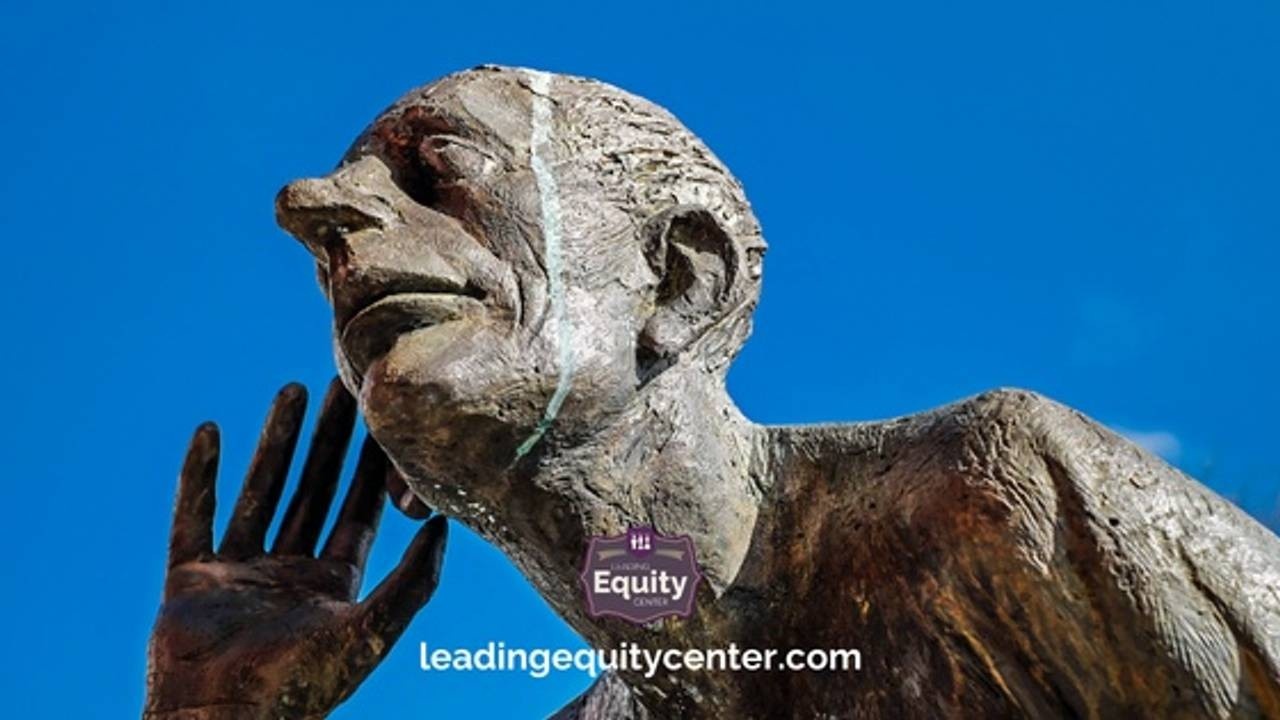We must make sure our students feel seen and valued in our schools

Hey Advocates,
World Mental Health Day was October 10th, and just as we know how crucial it is to speak about cultural holidays and traditions beyond their assigned celebratory months, we must make mental health a part of everyday conversation as well. Mental Health affects everyone; it's how we think and interpret behaviors and actions that impact how we navigate our lives and make sense of what is happening around us and to us.
Yes, we may not be licensed therapists or mental health practitioners, which is certainly not part of our job descriptions. Though let's be honest, everyone knows a teacher's role, more often than not, goes beyond teaching curriculum. So, as educators, we must create spaces where students feel comfortable and safe in sharing their thoughts and feelings as they impact the way they learn and show up every day. We must make sure our students feel seen and valued in our schools. And that as educators, we enforce the policies and equip ourselves with strategies to protect our students. I share strategies for modeling vulnerability and humility in chapter 8 of my book.
October is also National Bullying Prevention Month, so it wasn't surprising that I stumbled upon this Insider article, "I was bullied when I was in school and now I'm a teacher. I know firsthand that anti-bullying laws are meaningless" by Christina Wyman. Wyman's article speaks to her experience with bullying, how it impacted her teaching experience and her opinion on anti-bullying laws. Additionally, the report provides insight into alarming statistics concerning bullying and students' mental health.
A 2019 National Center for Educational Statistics reported that among five students, at least one student would report being bullied (20.2%); The same statistics also notes that students who have been bullied "indicate that bullying has a negative effect on how they feel about themselves (27%), their relationships with friends and family (19%), their school work (19%), and physical health (14%)." A 2019 Center for Disease Control report found that "students who experience bullying are at increased risk for depression, anxiety, sleep difficulties, lower academic achievement, and dropping out of school." Research has also proven that bullying can lead to post-traumatic stress disorder (PTSD) anxiety disorder.
Yet, not all states have taken action to enact anti-bullying legislation. Georgia was the first to do so in 1999 as a response to the 1999 Columbine shootings and bullying-related suicide. Some states, like Virginia, have passed legislation prohibiting transgender students from living their true identities. The new policies would require transgender students to "access school facilities and programs matching the sex they were assigned at birth."
As Wyman states, "History continues to teach us that anti-bullying laws are only as useful as the adults willing to enforce them." We must educate ourselves and our communities to vote on policies and legislation that view our students holistically to have their best interests in mind.
As a parent and educator, I can relate to Wyman's worry about bullying for her niece and how "Invisibility will not be an option for her." Mainstream society has taught us that those who are different than the "norm" cannot be invisible. However, as parents, we can equip our children with the skills to have the courage and confidence to say what is going on when no adult is watching or when an adult is not taking enough action on their behalf. And as parents, we listen and advocate for our children.
As teachers, we have to be aware of how our students are showing up and be willing to ask questions as simple as, "I noticed (insert non-typical behavior), is everything okay?" or "I noticed you're a little off today, go take a walk or go to the bathroom and freshen up, I'm here if you want to talk." Additionally, creating affinity spaces for students may also serve as a means for students to share their experiences and emotions.
Sometimes all it takes is a question, a check-in to help students become more comfortable in sharing, or maybe having their favorite teacher, who doesn't have to be you, to lean in. Long term, we must also discuss social-emotional learning (SEL) to create learning environments where our students are heard, valued, and seen.
I urge you to check out yesterday's live stream, "Creating a Sustainable, Scalable SEL system," with Dr. Krista Leh. Remember to subscribe to the channel!
Content created this week:
Show Highlights
- The foundations of Dr. Irby’s passion for researching racial equity
- Racial resources in organizations
- The principal’s role in racial equity work
- Confrontational Culture
- Racial Equity Keepers
Session Description
Now, more than ever, we need a clear, unwavering focus on social emotional learning (SEL) in education - for ourselves and our students. It is critical that educators ensure a healthy, safe learning environment where students feel seen, heard, included, valued, and accepted. In this session, attendees will explore the new CASEL definition of SEL, examine four entry points for SEL integration, and reflect on three critical factors necessary to develop a comprehensive, sustainable, scalable SEL system.
Consider taking 2 minutes to write a review on Amazon.
That's all for this week,
Sheldon



